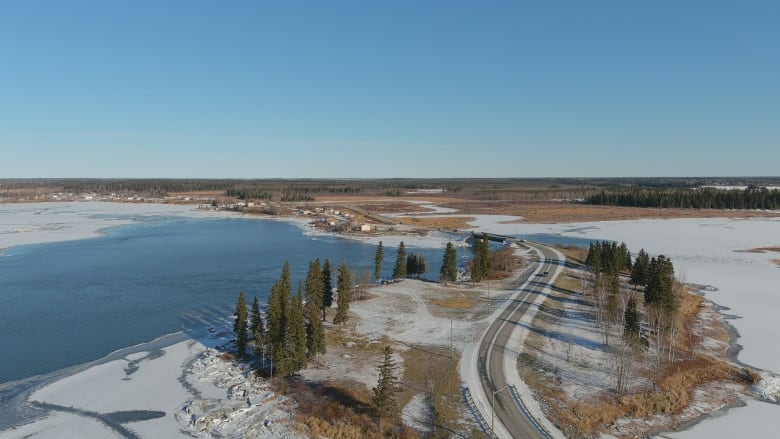A First Nation in northern Manitoba will be receiving military aid to battle its COVID-19 outbreak, the community’s chief told CBC News.

A First Nation in northern Manitoba will be receiving military aid to battle its COVID-19 outbreak, the community’s chief told CBC News.
Members of the Canadian Armed Forces visited Pimicikamak, also known as Cross Lake First Nation, last weekend to assess how best to help the COVID-19 outbreak there.
On Monday, Chief David Monias told CBC News via text message that 25 armed forces personnel will be dispatched to the First Nation of about 8,000 people, located about 530 kilometres north of Winnipeg.
“That’s a big relief for our community,” said Donnie McKay, a Cross Lake band councillor responsible for health and social services.
As of Monday, Pimicikamak has 178 known active cases of COVID-19; 87 of those cases are children, according to a bulletin issued by the band office.
The community has had 260 total COVID-19 cases since Feb. 8, it says, adding that about 6.4 per cent of community members have been diagnosed with COVID-19.
Nurses working at the community nursing station have been working around the clock and they’re getting tired, so the army’s arrival will lighten their load, said McKay.
“They will get the relief that they need — our nurses and doctors and our health staff. So that’s a big boost for our community,” he said.
Military to stay 2 weeks, chief says
Depending on the weather and finalization of transport arrangements, members of the armed forces could be in Pimicikamak by Tuesday. They are currently slated to be in the community for two weeks, said Monias, but assessments will be done on the seventh and 12th days of their stay.
The military’s main tasks will be to coordinate with the First Nation’s leadership and partners, conduct wellness checks, establish and run alternative isolation arrangements — spaces that allow people to safely self-isolate — and support public awareness about public health rules, Monias said.
“One of the most critical things that we need is the capacity, the resources that we do not have in the community, that other cities and towns have in Manitoba or elsewhere in non-Indigenous communities,” said McKay.
“We are chronically short-staffed in this community.”

CBC News contacted the Department of National Defence for more information. A spokesperson said the department has nothing to share at this time, “but we’ll keep you posted as things progress in the next day or so.”
This is the fifth time members of the Canadian Armed Forces had to be sent to an Indigenous community in Manitoba to help with a COVID-19 outbreak.
Earlier this month, the military was sent to Pauingassi First Nation to provide humanitarian aid. The fly-in community of 500 people, located just over 280 kilometres northeast of Winnipeg, had 145 known active cases when the army arrived.
Meanwhile, James Favel, an ambassador for the Assembly of Manitoba Chiefs (AMC), has confirmed that there will be a team of 30 AMC ambassadors going to Cross Lake First Nation.
“We’re there to shoulder some of the burden that the community’s rapid response team has been shouldering for a while now,” said Favel. “Basically, we’re trying to trying to help them be able to take a bit of a break and heal.”
Monias says the team will be staying at D.R. Hamilton School, and will provide support in “other roles” that civilians can do.
Those include manning checkpoints, making PPE kits and food hampers, performing wellness checks and delivering mail, said Favel.
Pimicikamak is waiting to hear back from Manitoba Keewatinowi Okimakanak Inc. about deploying their mental health and crisis team to help people in isolation who may be suffering from anxiety, depression or suicidal thoughts, he said.
Meanwhile, McKay said pandemic fatigue is starting to set in for the community. People are stressed, frustrated and not used to being cooped up inside their homes for such long periods of time.
Many elders have called asking why they can’t see their family and that they’re feeling lonely, he said.
“Those are the type of frustrations and people getting upset — and we don’t blame them because they’re not used to this.”
